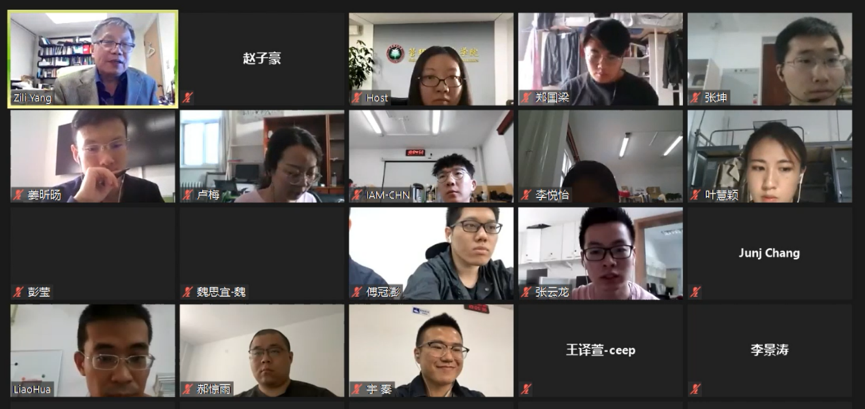
On the morning of September 25, 2020, Professor Yang Zili of the State University of New York at Binghamton was invited to give an online academic report entitled "Climate change and externality". The report was presided over by Professor Yu Biying and the teachers and students of the center participated.
Professor Yang Zili is a professor of economics at the State University of New York, an adjunct professor of Beijing Institute of Technology, and a doctor of economics from Yale University. He is mainly engaged in resource and environmental economics, energy economics, economic modeling, applied game theory, and Chinese economy. Professor Yang Zili and Professor William D. Nordhaus of Yale University, who won the Nobel Prize in economic science in 2018, jointly developed and established the most influential comprehensive assessment model of climate change (RICE model) in the world. The relevant results were published in top journals such as American Economic review. The RICE model and its derived models have been widely used in previous reports of the United Nations Intergovernmental Panel on Climate Change (IPCC). In addition, Professor Yang has independently developed a research method that combines the concept and algorithm of numerical solution of game theory with the comprehensive assessment model of climate economy. He is the first scholar in the world to introduce non-cooperative game solutions and cooperative game solutions into large-scale comprehensive evaluation models. He is also the main modeler of the EPPA model of the MIT Energy Laboratory in the 1990s.

In this report, Professor Yang first pointed out that the impact of climate change can be regarded as an external phenomenon, and the DICE and RICE models are a kind of comprehensive assessment model (Intergrated Assessment Model) that clearly regards climate change as an externality. Then Professor Yang introduced the idea and method of how to incorporate externality into DICE and RICE models, pointed out the necessity of integrating the external impacts of climate change into our understanding of climate change from a socio-economic perspective, and demonstrated the key role of externality in IAM modeling from the perspective of ignoring the bias caused by externalities in climate change economics. The Nobel Committee has also recognized the consideration of externalities in the DICE and RICE models, which is an important reason for their extensive influence in the field of climate models. After the report, everyone had an in-depth exchange with Professor Yang on how to internalize the externalities of climate change and how to coordinate the differences in emission reduction targets among different countries, and took an online group photo.